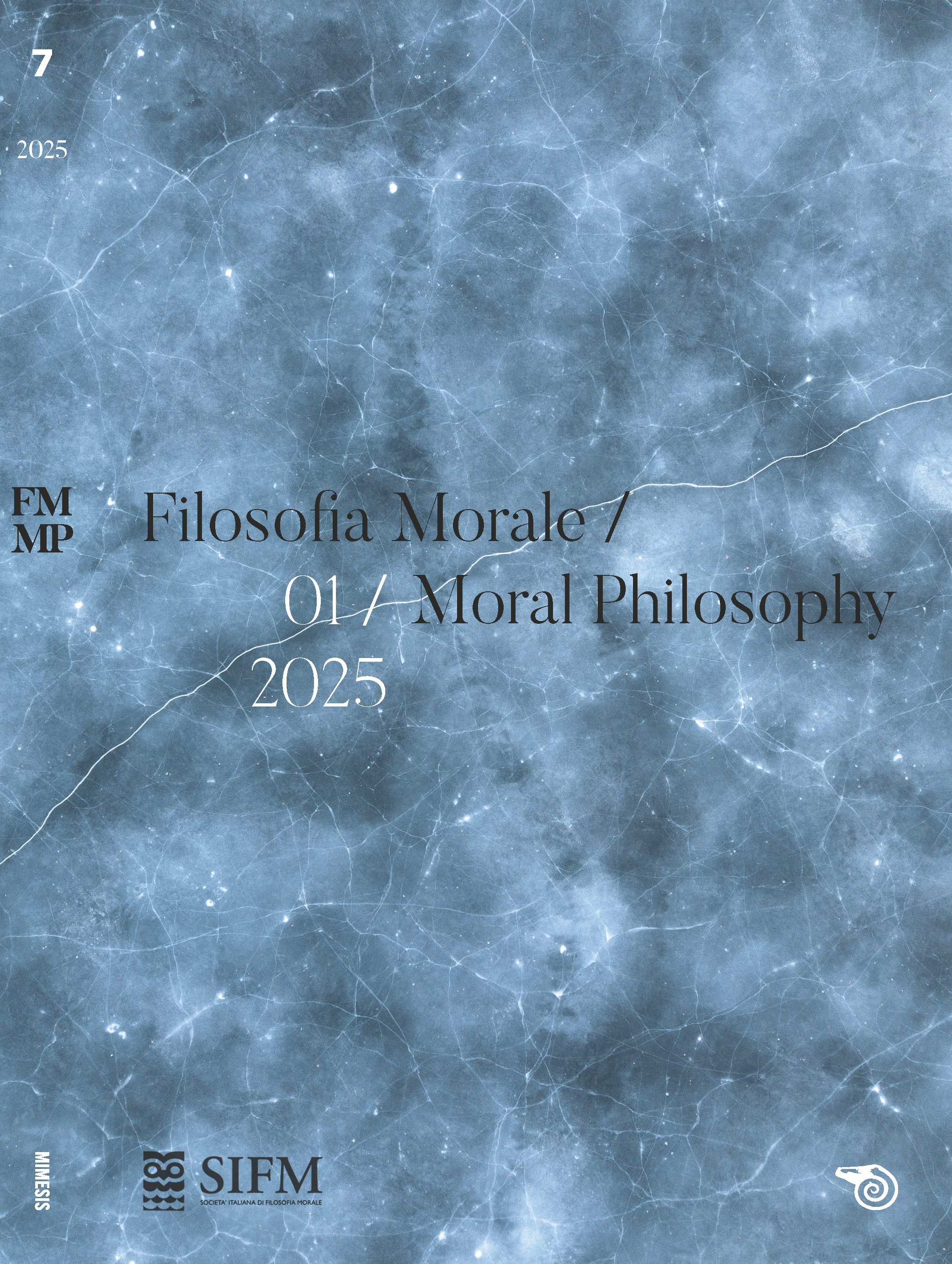Suffering and resistance. Remarks on critical theory and moral thought in Adorno
Keywords:
Forms of life; Context of guilt; Right/wrong life; Description/prescription; Nicht mitmachenAbstract
This paper explores three levels at which Adorno’s Critical Theory engages moral thought, by constantly connecting normative and descriptive aspects: a) as a moral critique of bourgeois life, i.e., a critique of real modes of subject’s relation to itself, things and other people, invoking moral-normative criteria; b) as a critique of the internal normativity of bourgeois life, which turns out to be intertwined with domination, and c) as a critique of modern moral theories, which themselves prove to be connected with the same social relations and grounded in identity thought. Making a demarcation with respect to both the tradition of virtue and the good, and that of the ethics of norms, it is argued that Adorno’s proposal of an ethics of “resistance” moves between a contextualism of “damaged life” and a peculiar “agent-based” moral theory, centred on the self-reflexive movement of a situated agent. The latter finds itself entangled within relations of domination, as such committed to revoking its own monadic constitution and inclined to give voice to the oppressed, “inside” and “outside” himself.



